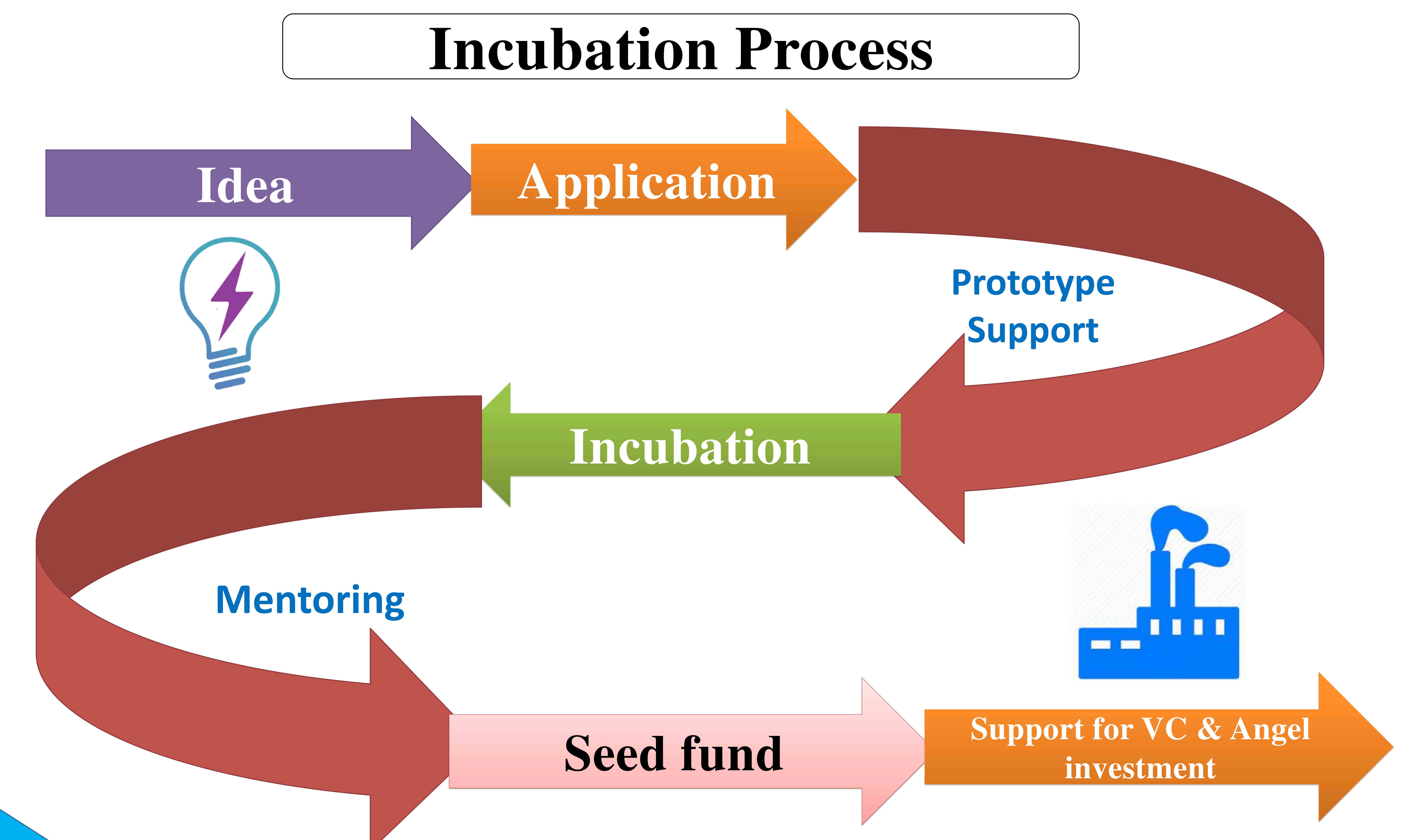What are Startup Incubators and Accelerators: Understanding the Difference
Startup incubators and accelerators are programs designed to support the growth and development of early-stage tech startups. While often used interchangeably, these terms have distinct meanings and purposes. Understanding the differences between them is crucial for entrepreneurs seeking to leverage these resources to drive innovation and success.
A startup incubator is a program that provides resources, support, and guidance to early-stage startups, typically in the idea or seed stage. Incubators offer a nurturing environment, often with shared office space, mentorship, and networking opportunities. The primary goal of an incubator is to help startups refine their business models, develop their products or services, and prepare for future growth. Examples of well-known incubators include Y Combinator, Techstars, and 500 Startups.
In contrast, a startup accelerator is a program that focuses on scaling existing startups, usually in the growth or expansion stage. Accelerators provide access to funding, mentorship, and networking opportunities, with a focus on rapid growth and market penetration. The primary goal of an accelerator is to help startups achieve significant traction and prepare for future funding rounds or exit opportunities. Examples of well-known accelerators include Seedcamp, Startupbootcamp, and Dreamit.
Key differences between incubators and accelerators include the stage of the startup, the level of funding provided, and the program’s focus. Incubators tend to focus on early-stage startups, providing resources and support to help them develop their ideas. Accelerators, on the other hand, focus on growth-stage startups, providing funding and support to help them scale rapidly.
Both incubators and accelerators play a vital role in the tech startup ecosystem, providing resources, expertise, and funding to support innovation and entrepreneurship. By understanding the differences between these programs, entrepreneurs can make informed decisions about which resources to leverage to drive the growth and success of their tech startups.
How to Choose the Right Incubator or Accelerator for Your Tech Startup
Selecting the right incubator or accelerator for a tech startup can be a daunting task, given the numerous options available. To make an informed decision, entrepreneurs should consider several factors, including industry focus, funding, mentorship, and networking opportunities.
Industry focus is a critical consideration, as it can significantly impact the relevance and effectiveness of the incubator or accelerator program. Tech startups should look for programs that specialize in their specific industry or niche, as this can provide access to valuable expertise, resources, and connections. For example, a startup focused on artificial intelligence may benefit from a program like the AI Accelerator, which provides specialized support and resources for AI-related ventures.
Funding is another essential factor to consider. Incubators and accelerators often provide varying levels of funding, ranging from seed funding to series A investments. Tech startups should evaluate the funding options available and consider whether they align with their current needs and growth stage. Some programs, like Y Combinator, offer significant funding in exchange for equity, while others, like Techstars, provide smaller amounts of funding with more flexible terms.
Mentorship is a vital component of any incubator or accelerator program. Tech startups should look for programs that offer access to experienced mentors who can provide guidance, support, and valuable insights. Programs like 500 Startups and Seedcamp offer mentorship opportunities
The Benefits of Joining a Startup Incubator or Accelerator
Joining a startup incubator or accelerator can be a game-changer for tech startups, offering a wide range of benefits that can help drive growth, innovation, and success. From access to resources and expertise to funding and networking opportunities, incubators and accelerators provide a supportive ecosystem that can help startups thrive.
One of the primary benefits of joining a startup incubator or accelerator is access to resources and expertise. These programs often provide startups with access to shared office space, mentorship, and networking opportunities, as well as access to specialized resources such as prototyping facilities, testing labs, and data analytics tools. For example, the startup accelerator Y Combinator provides its participants with access to a network of experienced mentors, as well as resources such as office space and prototyping facilities.
In addition to resources and expertise, incubators and accelerators also offer funding opportunities. Many programs provide seed funding or investments to participating startups, which can help them get off the ground or scale their operations. For example, the startup accelerator 500 Startups provides its participants with up to $250,000 in funding, as well as access to a network of investors and partners.
Another key benefit of joining a startup incubator or accelerator is the potential for rapid growth and success. These programs often provide startups with the support and resources they need to quickly develop and launch their products or services, which can help them gain traction and attract customers. For example, the startup accelerator Techstars has helped numerous startups achieve rapid growth and success, including companies such as Uber and Airbnb.
Finally, incubators and accelerators also offer a range of networking opportunities, which can help startups connect with potential partners, investors, and customers. These programs often host events and conferences, which can provide startups with the opportunity to showcase their products or services and connect with key stakeholders. For example, the startup incubator Startup Grind hosts a range of events and conferences, including the annual Startup Grind Global Conference.
Overall, joining a startup incubator or accelerator can be a highly beneficial experience for tech startups, offering access to resources, expertise, funding, and networking opportunities. By leveraging these benefits, startups can drive growth, innovation, and success, and achieve their goals in the competitive tech industry.
Success Stories: Notable Tech Startups that Emerged from Incubators and Accelerators
Many successful tech startups have emerged from incubators and accelerators, leveraging the resources, expertise, and networking opportunities provided by these programs to drive growth and innovation. Here are a few notable examples of tech startups that have benefited from incubators and accelerators:
Airbnb, the popular online marketplace for short-term vacation rentals, graduated from the startup accelerator Y Combinator in 2009. During its time in the program, Airbnb received seed funding, mentorship, and networking opportunities that helped the company grow and expand its operations. Today, Airbnb is a global brand with millions of users and a valuation of over $50 billion.
Uber, the ride-sharing giant, also got its start in a startup accelerator. In 2010, Uber participated in the startup accelerator First Round Capital, where it received funding and mentorship that helped the company develop its business model and expand its operations. Today, Uber is a global brand with operations in hundreds of cities around the world.
Dropbox, the cloud storage company, graduated from the startup accelerator Y Combinator in 2007. During its time in the program, Dropbox received seed funding, mentorship, and networking opportunities that helped the company grow and expand its operations. Today, Dropbox is a leading provider of cloud storage solutions, with millions of users and a valuation of over $10 billion.
Instacart, the grocery delivery company, participated in the startup accelerator Y Combinator in 2012. During its time in the program, Instacart received funding and mentorship that helped the company develop its business model and expand its operations. Today, Instacart is a leading provider of grocery delivery services, with operations in hundreds of cities around the world.
These success stories demonstrate the value of incubators and accelerators in supporting the growth and development of tech startups. By providing access to resources, expertise, and networking opportunities, these programs can help startups overcome the challenges of launching and growing a successful business.
In addition to these success stories, many other tech startups have also benefited from incubators and accelerators. For example, companies like Reddit, Stripe, and Twitch have all participated in startup accelerators and gone on to achieve significant success. These examples demonstrate the potential of incubators and accelerators to support the growth and development of tech startups, and highlight the importance of these programs in the tech ecosystem.
What to Expect from a Startup Incubator or Accelerator Program
Startup incubators and accelerators offer a range of programs and services designed to support the growth and development of tech startups. While the specific components and structure of these programs can vary, there are several key elements that entrepreneurs can expect to find in a typical startup incubator or accelerator program.
The application process for a startup incubator or accelerator program typically involves submitting an application, which may include a business plan, financial projections, and other supporting documents. The application process may also involve a series of interviews or pitches, where entrepreneurs can showcase their ideas and demonstrate their passion and commitment to their startup.
Once accepted into a program, entrepreneurs can expect to participate in a range of activities and services, including mentorship, networking opportunities, and access to resources such as office space, funding, and expertise. Many programs also offer a range of workshops, seminars, and training sessions, designed to help entrepreneurs develop the skills and knowledge they need to succeed.
The duration of a startup incubator or accelerator program can vary, but most programs last between 3-6 months. During this time, entrepreneurs can expect to work closely with mentors, advisors, and other entrepreneurs, and to participate in a range of activities and events designed to support their growth and development.
After completing a program, entrepreneurs can expect to receive ongoing support and guidance, including access to networking opportunities, funding, and other resources. Many programs also offer alumni networks, which can provide a valuable source of support and connection for entrepreneurs as they continue to grow and develop their startups.
In addition to these core components, many startup incubators and accelerators also offer a range of specialized programs and services, such as industry-specific accelerators, corporate innovation programs, and social impact initiatives. These programs can provide entrepreneurs with access to specialized resources, expertise, and networking opportunities, and can help them to develop innovative solutions to real-world problems.
Overall, startup incubators and accelerators offer a range of programs and services designed to support the growth and development of tech startups. By providing access to resources, expertise, and networking opportunities, these programs can help entrepreneurs to overcome the challenges of launching and growing a successful business, and to achieve their goals in the competitive tech industry.
How Incubators and Accelerators Foster Innovation and Entrepreneurship
Incubators and accelerators play a vital role in fostering innovation and entrepreneurship in the tech industry. These programs provide a supportive ecosystem that enables tech startups to grow and thrive. By offering resources, mentorship, and networking opportunities, incubators and accelerators help entrepreneurs overcome common challenges and achieve success.
One of the primary ways incubators and accelerators promote innovation is by providing access to cutting-edge resources and technologies. Many programs offer state-of-the-art facilities, equipment, and software, allowing startups to develop and test their products and services in a collaborative and dynamic environment. Additionally, incubators and accelerators often partner with leading tech companies, research institutions, and industry experts, providing startups with valuable connections and insights.
Mentorship is another key aspect of incubators and accelerators. Experienced entrepreneurs, investors, and industry experts provide guidance and support to startups, helping them navigate the challenges of launching and growing a business. This mentorship can be invaluable, as it provides startups with the benefit of experienced perspectives and helps them avoid common pitfalls.
Networking opportunities are also a critical component of incubators and accelerators. These programs bring together entrepreneurs, investors, and industry experts, creating a vibrant community that fosters collaboration and innovation. Startups can connect with potential partners, customers, and investors, and learn from others who have faced similar challenges.
Furthermore, incubators and accelerators often provide funding opportunities, which can be a significant challenge for many tech startups. By offering access to capital, these programs enable startups to scale their businesses and achieve their goals. Many incubators and accelerators also offer funding through partnerships with venture capital firms, angel investors, and crowdfunding platforms.
Finally, incubators and accelerators help to foster a culture of innovation and entrepreneurship. By bringing together like-minded individuals and organizations, these programs create a dynamic and supportive community that encourages experimentation, creativity, and risk-taking. This culture is essential for driving innovation and entrepreneurship, as it allows startups to push boundaries and develop new ideas.
In summary, incubators and accelerators play a vital role in fostering innovation and entrepreneurship in the tech industry. By providing resources, mentorship, networking opportunities, funding, and a culture of innovation, these programs enable tech startups to grow and thrive. As the tech industry continues to evolve, the importance of incubators and accelerators will only continue to grow, driving innovation and entrepreneurship for years to come.
Overcoming Challenges: Common Hurdles Faced by Tech Startups in Incubators and Accelerators
While tech startup incubators and accelerators can provide numerous benefits, they also present unique challenges that entrepreneurs must navigate. Understanding these challenges can help tech startups prepare and make the most of their experience in these programs.
One of the most significant challenges faced by tech startups in incubators and accelerators is intense competition. With many startups vying for limited resources and attention, it can be difficult to stand out and secure funding, mentorship, and other support. To overcome this challenge, tech startups must develop a strong value proposition and be prepared to articulate their unique strengths and advantages.
High expectations are another common hurdle faced by tech startups in incubators and accelerators. With the pressure to rapidly scale and achieve success, entrepreneurs may feel overwhelmed and struggle to meet the demands of the program. To manage these expectations, tech startups must set realistic goals and priorities, and be prepared to adapt and pivot as needed.
Limited resources are also a common challenge faced by tech startups in incubators and accelerators. With limited funding, personnel, and infrastructure, entrepreneurs must be resourceful and efficient in their use of resources. To overcome this challenge, tech startups must develop a lean and agile business model, and be prepared to seek out additional resources and support as needed.
Additionally, tech startups in incubators and accelerators may face challenges related to intellectual property protection, regulatory compliance, and data security. To address these challenges, entrepreneurs must be aware of the relevant laws and regulations, and take steps to protect their intellectual property and ensure the security of their data.
Cultural and social challenges can also arise in incubators and accelerators, particularly in programs with a diverse range of participants. To overcome these challenges, tech startups must be open to feedback and willing to adapt to different perspectives and approaches.
Finally, tech startups in incubators and accelerators may face challenges related to post-program support and sustainability. To address these challenges, entrepreneurs must develop a clear plan for sustaining their business after the program, and be prepared to seek out additional resources and support as needed.
By understanding these common challenges, tech startups can better prepare themselves for the opportunities and obstacles that arise in incubators and accelerators. With the right mindset, strategies, and support, entrepreneurs can overcome these challenges and achieve success in these programs.
Conclusion: The Importance of Startup Incubators and Accelerators in the Tech Ecosystem
Startup incubators and accelerators play a vital role in the tech ecosystem, providing a supportive environment for entrepreneurs to develop and grow their businesses. By offering access to resources, expertise, and funding, these programs help tech startups overcome common challenges and achieve success.
The importance of tech startup incubators and accelerators cannot be overstated. These programs have been instrumental in launching some of the world’s most successful tech companies, and continue to drive innovation and entrepreneurship in the industry. By providing a platform for entrepreneurs to connect with mentors, investors, and peers, incubators and accelerators help to foster a culture of innovation and collaboration.
Furthermore, tech startup incubators and accelerators contribute to the overall health and growth of the tech ecosystem. By supporting the development of new businesses and technologies, these programs help to create jobs, stimulate economic growth, and drive innovation. As the tech industry continues to evolve, the role of incubators and accelerators will only become more important, providing a critical link between entrepreneurs, investors, and the wider tech community.
In conclusion, tech startup incubators and accelerators are a crucial component of the tech ecosystem, providing a supportive environment for entrepreneurs to develop and grow their businesses. By offering access to resources, expertise, and funding, these programs help tech startups overcome common challenges and achieve success. As the tech industry continues to evolve, the importance of incubators and accelerators will only continue to grow, driving innovation and entrepreneurship for years to come.
As the tech industry continues to grow and evolve, it is likely that we will see even more innovative and specialized incubators and accelerators emerge. These programs will play a critical role in supporting the development of new technologies and businesses, and will help to drive innovation and entrepreneurship in the industry. By understanding the importance of tech startup incubators and accelerators, entrepreneurs and investors can better navigate the tech ecosystem, and capitalize on the opportunities that these programs provide.








